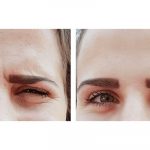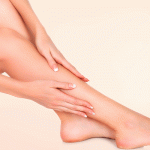In the past five years, the beauty industry has reached new levels. Many people are more aware of their skin issues or goals. They also find ways to alleviate problem areas and to create healthy, glowing skin. From serums to sleeping masks, the cosmetics industry has it all. A popular ingredient or product that many people cannot get enough of is retinol. In this guide, we discuss what retinol is and why you should be using it.
What is retinol?
You have most likely heard of retinol since it is in many products that are readily available in drug stores. But, you may not know what it is. Retinol usually comes in a cream or serum that has vitamin A-rich ingredients and other anti-aging properties that boost the amount of collagen your skin produces. This increase of collagen plumps your skin, which minimizes your fine lines and wrinkles as well as improves skin tone and color. You can easily purchase products that contain retinol in grocery or beauty supply stores. Your dermatologist can also recommend specific brands or items for your type of skin as well as provide prescription-strength retinoid.
What is the difference between retinol and retinoids?
Retinol is derived from a retinoid that is rich in vitamin A derivatives. This medical agent is primarily used to prevent or decrease the signs of aging. However, retinol and retinoids are not the same. Retinoids are prescription-strength drugs such as tretinoin (or Retin-A), adapalene or tazarotene. Retinol is a weaker form of retinoids, available over the counter. Always talk to your doctor before starting retinoids.
What are the benefits of retinol?
You can use retinol to treat many issues like aging, fine lines, wrinkles, acne, sunspots, uneven skin texture, hyperpigmentation and the appearance of large pores. Unlike many other anti-aging products, retinol goes deep beneath the outer portion of the skin. It neutralizes free radicals to boost the production of collagen and elastin. This is the ‘plumping’ effect that many doctors refer to when talking about ridding the face of fine lines and wrinkles.
Retinol also has an exfoliating effect that can help improve the skin’s texture and tone. Many doctors recommend it to patients with acne or acne scarring issues. These products unclog the pores and prevent further blemishes. You can also use retinoid products to level out the hydration levels in your skin.
How should I start integrating retinol into my routine?
If you already have a skincare routine, then adding retinol should be no problem. One point to remember is that you should only apply it at night, as it is extremely sensitive to light. Applying retinol during the day can cause sun damage to your skin. In fact, it is so sensitive to light that manufacturers place it in dark packaging and recommend that it be stored in dark, cool places like a cabinet or refrigerator.
You do not have to start using it every day. Instead, let your skin adjust to it just like you would with any other product. Start by applying it to your skin two times a week. Once your skin acclimates, then slowly start applying it more often. Apply only a small amount of the product at a time. All it takes is a pea-sized amount to get the job done.
When you first start using retinoids, mix it into your moisturizer or night cream so it goes on more smoothly and reaches more surface area. This option is great for people with sensitive skin or who have just started using the product. After a few weeks, apply the retinol straight to your skin.
Always monitor your skin after using retinol. You may experience dryness, but that is normal if you are using it for the first time. Retinol and retinoids are not an overnight solution. It takes time for it to show positive results. Give it time, and always consult your doctor if you have any questions or concerns.
What are the side effects?
Even though retinol is FDA-approved, it does comes with some possible side effects. You may notice that your skin is dry when you first start using it. This is normal and will go away once your skin acclimates to the product. Other common side effects include redness, itchiness, peeling or irritated skin. To lessen these effects, apply the product 30 minutes after you wash your face. After a few weeks, your symptoms will fade. If you experience pain, rashes or prolonged symptoms, contact your dermatologist right away. You may need a specific prescription for your skin type.
Cosmetic dermatology in Columbia, Lexington, Irmo and Camden
Retinol is a great product for helping you improve your skin. After a few weeks of use, you should start to see improvements. If you would like more advice about retinol, retinoids, any skin issues or to get a retinoid prescription, schedule a consultation with our dermatologists today.






